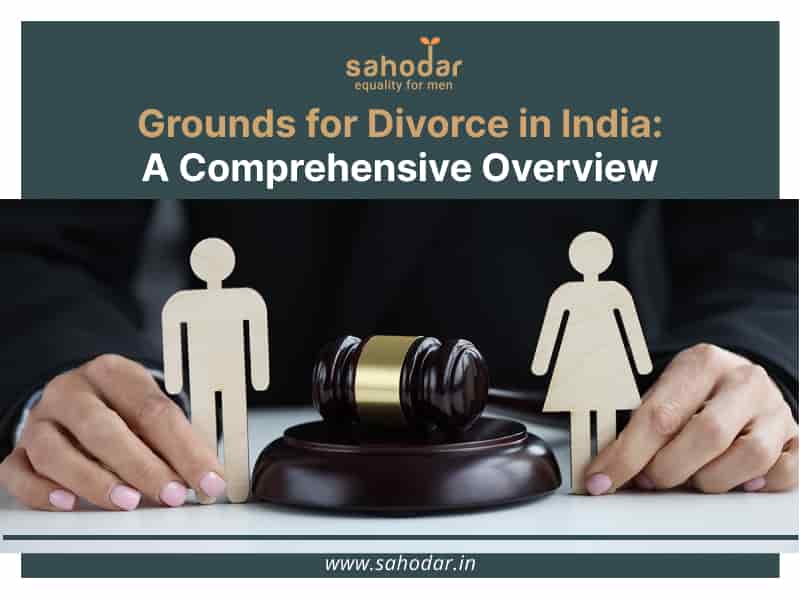Divorce laws in India are shaped by the nation’s diverse cultural and religious fabric, with distinct provisions under personal laws and civil legislation. Each set of laws outlines specific grounds for divorce, reflecting both traditional values and modern interpretations of marital rights. Below is an in-depth examination of these grounds, categorised by the applicable legal frameworks.
Grounds for Divorce in Hindu Marriage Act, 1955
The Hindu Marriage Act applies to Hindus, Buddhists, Jains, and Sikhs. It provides a comprehensive framework for divorce, with the following grounds:
- Adultery: Engaging in voluntary sexual relations outside the marriage constitutes a valid ground for divorce. The petitioner must prove that adultery occurred.
- Cruelty: Physical or mental cruelty that endangers the spouse’s health, safety, or well-being is grounds for divorce. Examples include physical abuse, verbal harassment, or emotional manipulation.
- Desertion: Abandonment by a spouse for at least two continuous years without a valid reason allows the deserted spouse to file for divorce.
- Conversion: If a spouse converts to another religion without the other’s consent, it grounds marriage dissolution.
- Mental Disorder: A spouse’s incurable mental illness, rendering marital life unendurable, is a valid reason for divorce.
- Leprosy: If one spouse suffers from incurable and communicable leprosy, it is grounds for divorce.
- Venereal Disease: Communicable sexually transmitted diseases (STDs) can also form the basis for seeking a divorce.
- Renunciation: If a spouse renounces worldly life and enters a religious order, the other spouse may seek divorce.
- Presumption of Death: If a spouse has not been heard from for at least seven years, the other spouse can petition for divorce on this basis.
Grounds for Divorce in Muslim Personal Law
Muslims in India are governed by their law, which allows both men and women to seek divorce under specific circumstances:
- Talaq (Unilateral Divorce): A husband may pronounce talaq to dissolve the marriage, whereas a wife can seek divorce through khula (mutual agreement) or Mubarak (mutual consent).
- Faskh-e-Nikah: A wife can approach a religious authority to annul the marriage on grounds such as cruelty, non-maintenance, desertion, or impotence.
- Grounds for Women (Dissolution of Muslim Marriages Act, 1939): Women can seek divorce for non-payment of maintenance, cruelty, desertion, or other specified conditions.
Grounds for Divorce in Christian Marriage Act, 1869
The Christian Marriage Act provides the following grounds for divorce:
- Adultery: Acts of infidelity are a primary reason for divorce.
- Cruelty: Any form of physical or emotional abuse that makes cohabitation unsafe can be grounds for divorce.
- Desertion: Abandonment for a continuous period of two years without just cause allows for divorce proceedings.
- Unsoundness of Mind: A spouse’s mental incapacity, proven to be incurable, may result in the dissolution of the marriage.
- Conversion: Changing one’s religion without the other spouse’s consent is grounds for divorce.
Grounds for Divorce in Parsi Marriage and Divorce Act, 1936
This act applies specifically to the Parsi community and includes the following unique grounds:
- Non-consummation: Wilful refusal to consummate the marriage.
- Unnatural Offenses: Acts such as sodomy or bestiality.
- Grave Acts of Cruelty: Emotional and physical abuse that undermines marital harmony.
- Bigamy: A spouse’s act of contracting a second marriage while the first marriage is subsisting.
Grounds for Divorce in Special Marriage Act, 1954
This act governs interfaith and civil marriages, offering similar grounds to those outlined in the Hindu Marriage Act, including:
- Adultery, cruelty, desertion, mental illness, infectious diseases, and presumption of death.
Irretrievable Breakdown of Marriage
Although not explicitly codified in Indian law, the judiciary has recognised the doctrine of irretrievable breakdown in exceptional cases. This doctrine applies when reconciliation is impossible, and the marriage has lost its essence. The Supreme Court has recommended including this ground in statutory law.
Key Legal Interpretations and Recent Trends
- Misuse of Legal Provisions: Courts have highlighted concerns over the misuse of laws such as Section 498A IPC (cruelty by husband or relatives). The judiciary advocates for scrutiny of allegations to prevent unjust criminalisation.
- Alternative Dispute Resolution (ADR): Mediation and conciliation are increasingly encouraged to resolve marital disputes amicably. ADR mechanisms provide quicker, less adversarial resolutions.
- Evolving Social Perspectives: Topics like marital rape, though not explicitly criminalised, are gaining attention as grounds for divorce under cruelty. Legal reforms in this area remain a subject of active debate.
Conclusion
India’s divorce laws aim to balance traditional values with evolving societal norms. They offer a comprehensive framework for addressing marital disputes, ensuring fairness and dignity for both parties. As societal attitudes change, further reforms, such as recognising irretrievable breakdown as a statutory ground, may enhance the legal landscape for dissolving marriages.

